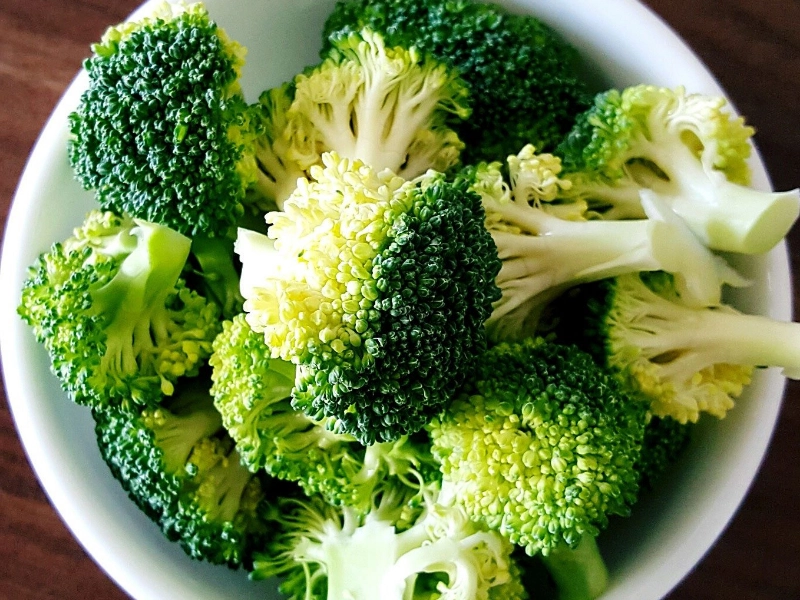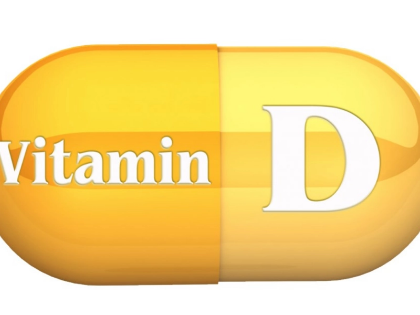Broccoli: A Natural Source of Potassium for Heart Health
Not only is broccoli a flexible vegetable, but it also has a powerhouse of vital nutrients—especially potassium. Maintaining heart health, controlling blood pressure, and supporting general body operations depend on this mineral in great part. Broccoli's high nutrient profile makes it a great addition to your diet that helps cardiac wellbeing. The potassium content of broccoli, its health advantages, and how to include this nutrientful vegetable into your meals are discussed in this page.
The Potassium Level of Broccoli

Potassium's Part in Heart Function
 Potassium's ability to assist control blood pressure makes it quite important for heart health. Among the main risk factors for heart disease and stroke is high blood pressure, sometimes known as hypertension. Consuming too much salt can raise blood pressure; potassium helps offset its effects. Potassium helps to preserve normal blood pressure by helping sodium to be excuted through urine.
Moreover, keeping appropriate cardiac rhythm depends on potassium. It helps the electrical signals controlling heartbeats be transmitted. Potassium intake sufficient enough to assist avoid arrhythmias, abnormal heartbeats that might cause major problems. Foods like broccoli provide enough potassium, which will help the electrical system of your heart and general cardiovascular condition.
Potassium's ability to assist control blood pressure makes it quite important for heart health. Among the main risk factors for heart disease and stroke is high blood pressure, sometimes known as hypertension. Consuming too much salt can raise blood pressure; potassium helps offset its effects. Potassium helps to preserve normal blood pressure by helping sodium to be excuted through urine.
Moreover, keeping appropriate cardiac rhythm depends on potassium. It helps the electrical signals controlling heartbeats be transmitted. Potassium intake sufficient enough to assist avoid arrhythmias, abnormal heartbeats that might cause major problems. Foods like broccoli provide enough potassium, which will help the electrical system of your heart and general cardiovascular condition.
Nutritional Value Beyond Potassium
 Apart from being a great source of potassium, broccoli presents a range of other vital minerals that support general wellness. It loads with vitamins C and K, fibre, and antioxidants. While vitamin K is essential for blood clotting and bone health, vitamin C is absolutely critical for immune system functioning and skin health.
Because broccoli keeps you feeling full, its fibre content helps control weight and supports digestive health. Moreover, broccoli has strong antioxidants including sulforaphane, which has been demonstrated to fight inflammation and oxidative stress. Broccoli is a great addition to a heart-healthy diet since these qualities help guard against chronic diseases including heart disease.
Apart from being a great source of potassium, broccoli presents a range of other vital minerals that support general wellness. It loads with vitamins C and K, fibre, and antioxidants. While vitamin K is essential for blood clotting and bone health, vitamin C is absolutely critical for immune system functioning and skin health.
Because broccoli keeps you feeling full, its fibre content helps control weight and supports digestive health. Moreover, broccoli has strong antioxidants including sulforaphane, which has been demonstrated to fight inflammation and oxidative stress. Broccoli is a great addition to a heart-healthy diet since these qualities help guard against chronic diseases including heart disease.
Including broccoli in your diet
 Including broccoli in your dishes is quick and fun. To keep broccoli's nutrients while improving its taste, steam, roast, or stir-fry it. A flexible element for many cuisines, it can be added in soups, salads, or pasta meals. Sautéing broccoli with garlic and olive oil makes a simple and filling side dish.
Consider combining broccoli with other meals high in potassium, including sweet potatoes, spinach, or bananas, thereby maximising the health advantages of this vegetable. This combo offers a complete nutrient profile and can improve your heart condition even further. Experimenting with several cooking techniques and recipes will help you to include broccoli more easily into your regular diet.
Including broccoli in your dishes is quick and fun. To keep broccoli's nutrients while improving its taste, steam, roast, or stir-fry it. A flexible element for many cuisines, it can be added in soups, salads, or pasta meals. Sautéing broccoli with garlic and olive oil makes a simple and filling side dish.
Consider combining broccoli with other meals high in potassium, including sweet potatoes, spinach, or bananas, thereby maximising the health advantages of this vegetable. This combo offers a complete nutrient profile and can improve your heart condition even further. Experimenting with several cooking techniques and recipes will help you to include broccoli more easily into your regular diet.
Value of a Balanced Diet
Although broccoli is a great source of potassium, it is important to keep a balanced diet including lean proteins, healthy grains, a range of fruits and vegetables. This variety guarantees that you get the many nutrients required for best health. Including a range of foods high in potassium together with broccoli will help you satisfy your daily potassium requirements and support heart health. As they offer a variety of vitamins, minerals, and antioxidants supporting general well-being, try to load your plate with vibrant fruits and veggies.
Possible Low Potassium Intake Risks
Low potassium intake can cause a number of health problems, most especially related to heart function. Low potassium levels could cause high blood pressure, more risk of stroke, and compromised heart function. Muscle weakness, tiredness, and abnormal heart rhythms are among low potassium's symptoms. Ensuring enough potassium intake from your food will help you to prevent some possible hazards. Including foods high in potassium, such as broccoli, bananas, and leafy greens, will help you to keep good potassium levels. Maintaining heart health and general wellness depends on routinely observing your eating patterns and making necessary changes. All things considered, broccoli is a great natural potassium supply that promotes heart function. For everyone trying to better their diet, its rich nutrient profile and adaptability in the kitchen make it a great choice. You may take advantage of the several health advantages this amazing vegetable has to offer by including broccoli into your meals and stressing a balanced diet.








